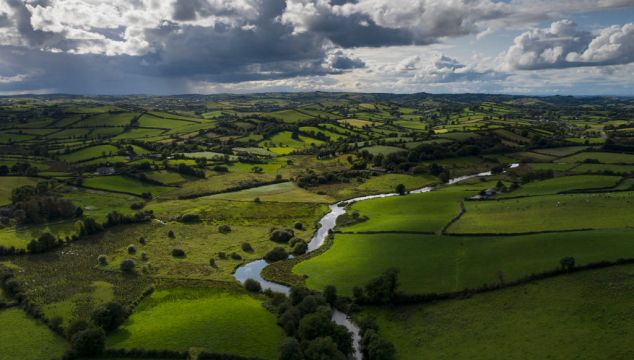Activities related to humans, such as wastewater discharge, agriculture and forestry are impacting water quality across the country's waterbodies according to a new report from the Environmental Protection Agency (EPA).
The Water Quality in 2022 report, which assesses the overall quality and ecological status of rivers, estuaries, coastal and ground waters, showed increased levels of nutrients, such as phosphorus and nitrogen, are impacting water quality.
Overall, the research found there has been "no significant change" in the biological quality of rivers or lakes, with the declines in some regards being levels out by improvements in others.
Nutrients
The EPA warned excess levels of nutrients can cause an overgrowth of plants and algae, clogging up water courses, using high levels of oxygen and harming aquatic life.
The researchers noted higher levels of phosphorus is particularly concerning for the water quality of rivers and lakes, while nitrogen is more of a concern for estuaries.
Phosphate concentrations were found to be too high in 28 per cent of rivers and 36 per cent of lakes, with the report authors adding that these levels will need to be reduced to improve water quality.
Irish waters are being damaged by nitrogen from fertilisers & manures, and phosphorus from agricultural runoff & wastewater discharges. These cause an overgrowth of plants & algae, clogging up our waters and using up oxygen which harms fish & aquatic life: https://t.co/SWSM48eVTC pic.twitter.com/7d1PgC2QpS
— EPA Ireland (@EPAIreland) June 14, 2023
Meanwhile, nitrogen and phosphorous loadings to marine environments also showed increases on 2021, continuing the upward trend which has been noted since 2013.
The study also examined nitrate concentrations, stating high levels in drinking water supplies pose a risk to human health.
Two fifths of rivers nationally were found to have nitrate concentrations which were too high, falling to 20 per cent among estuarine and costal waterways, marking an increase on 2021's levels.
The elevated levels were mainly found in the south and southeast regions, which the EPA said is "primarily attributable to intensive agricultural activities on freely draining soils in these areas".
Rankings
Just over half of rivers nationally between 2019 and 2022 were found to have a high or good biological quality, leaving 44 per cent with ratings of moderate, poor or bad, with two rivers falling into the lowest category — Annagh in Co Clare and Laune in Co Kerry.
Of the 671 rivers examined in 2022, 84 showed improvements in quality, while 77 regressed.
Meanwhile, of the 224 lakes monitored, 55 per cent achieved a quality ranking of high or good, with 45 per cent categorised as moderate, poor or bad. Those achieving the higher rankings were predominantly in the west and southwest regions, while the bad-ranked lakes were mainly concentrated around the Border region.
Nitrogen levels are too high in 40% of Irish rivers and 20% of estuaries. Nitrate levels in rivers and groundwaters increased between 2021 and 2022. Phosphorus levels are too high in 28% of rivers and 36% of lakes: https://t.co/SWSM48eVTC pic.twitter.com/0u9HtINUIr
— EPA Ireland (@EPAIreland) June 14, 2023
Advertisement
Finding that there was no significant change in the biological quality of the country's rivers and lakes in 2022, the EPA said "surface waters and groundwaters continue to be under pressure from human activities".
"Overall nutrient levels remain too high in many water bodies and there is no indication that they are decreasing.
"We will not meet our water quality objectives unless, and until, we reduce the emissions of nitrogen and phosphorus to our waters. Addressing this must be a priority," the researchers said.
They added the Nitrates Action Programme 2022-2025, which aims to prevent pollution of surface waters and groundwaters from agricultural sources and to protect and improve water quality, must be fully implemented by the Department of Agriculture and local authorities "using the full range of tools from compliance promotion to enforcement".
The report concludes that Uisce Éireann, formerly Irish Water, must also prioritise investment in urban wastewater infrastructure in areas where it is a significant pressure on waterways.







